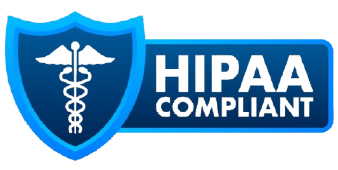In the fast-evolving world of healthcare, efficiency and accuracy are paramount. One of the most transformative tools in recent years is AI-powered transcription, which converts spoken medical notes, patient interactions, and clinical discussions into accurate, actionable text. However, with the rise of digital health solutions, concerns about data security and patient privacy have become more pressing than ever. This is especially true when it comes to compliance with the Health Insurance Portability and Accountability Act (HIPAA), the gold standard for protecting sensitive patient information.
In this blog post, we’ll address common concerns about data security in healthcare, explain how HIPAA-compliant AI transcription platforms ensure patient data protection, and discuss the critical role of encryption, secure storage, and access controls in maintaining compliance.
Why Data Security in Healthcare is a Top Priority
Healthcare organizations handle some of the most sensitive data imaginable: patient medical histories, diagnoses, treatment plans, and personal identifiers. A single data breach can have devastating consequences, including financial penalties, reputational damage, and, most importantly, harm to patients.
Common concerns about AI transcription in healthcare include:
– Unauthorized Access: Who can access transcribed data, and how is it protected?
– Data Breaches: How is patient information safeguarded against cyberattacks?
– Compliance Risks: Does the transcription platform meet HIPAA requirements?
These concerns are valid, but with the right technology and protocols, AI transcription can be both secure and compliant.
How HIPAA-Compliant AI Transcription Platforms Protect Patient Data?
HIPAA-compliant AI transcription platforms are designed with robust security measures to ensure patient data is protected at every stage of the transcription process. Here’s how they achieve this:
1. End-to-End Encryption
Encryption is the first line of defense in securing patient data. HIPAA-compliant platforms use end-to-end encryption (E2EE) to ensure that data is unreadable to anyone without authorized access. This means:
– Data is encrypted during transmission (e.g., when audio files are uploaded to the platform).
– Data remains encrypted at rest (when stored on servers).
Even if intercepted, encrypted data is virtually impossible to decipher without the encryption keys.
2. Secure Storage Solutions
HIPAA requires that patient data be stored securely, whether on-premises or in the cloud. Compliant AI transcription platforms use secure, HIPAA-certified cloud storage with advanced safeguards, such as:
– Regular security audits and vulnerability assessments.
– Redundant backups to prevent data loss.
– Physical security measures for data centers, including biometric access controls.
3. Strict Access Controls
Access to patient data must be limited to authorized personnel only. HIPAA-compliant platforms enforce role-based access controls (RBAC), ensuring that only verified users (e.g., doctors, nurses, or administrators) can access transcribed data. Additional measures include:
– Multi-factor authentication (MFA) to verify user identity.
– Activity logging to track who accessed data and when.
4. Business Associate Agreements (BAAs)
Under HIPAA, any third-party service provider handling patient data must sign a Business Associate Agreement (BAA). This legally binding contract ensures that the provider adheres to HIPAA regulations and is accountable for protecting patient information. Reputable AI transcription platforms always offer BAAs to their healthcare clients.
Key Features of a HIPAA-Compliant AI Transcription Platform
When choosing an AI transcription solution for healthcare, look for the following features to ensure compliance and security:
– HIPAA Certification: The platform should explicitly state its compliance with HIPAA regulations.
– Data Anonymization: Sensitive information (e.g., patient names, Social Security numbers) should be anonymized during transcription.
– Audit Trails: Detailed logs of all data access and modifications.
– Regular Security Updates: The platform should proactively address emerging threats and vulnerabilities.
The Benefits of HIPAA-Compliant AI Transcription
Beyond security, HIPAA-compliant AI transcription offers numerous advantages for healthcare providers:
– Improved Efficiency: Automating transcription saves time for healthcare professionals, allowing them to focus on patient care.
– Enhanced Accuracy: Advanced AI algorithms deliver highly accurate transcriptions, reducing errors in medical documentation.
– Scalability: Whether you’re a small clinic or a large hospital, AI transcription can scale to meet your needs.
– Cost-Effectiveness: Reducing manual transcription efforts lowers operational costs.
Conclusion: Prioritizing Security in AI-Powered Healthcare Solutions
As healthcare continues to embrace digital transformation, ensuring the security of patient data must remain a top priority. HIPAA-compliant AI transcription platforms provide a secure, efficient, and reliable way to handle sensitive medical information while adhering to strict regulatory standards.
By leveraging end-to-end encryption, secure storage, access controls, and BAAs, healthcare organizations can confidently adopt AI transcription technology without compromising patient privacy. When choosing a transcription partner, always verify their HIPAA compliance and security measures to safeguard your patients’ trust and your organization’s reputation.
Ready to Transform Your Healthcare Workflow?
Explore our HIPAA-compliant AI transcription solutions today and experience the perfect blend of security, accuracy, and efficiency. Protect your patients’ data while streamlining your operations—because in healthcare, every word matters.
